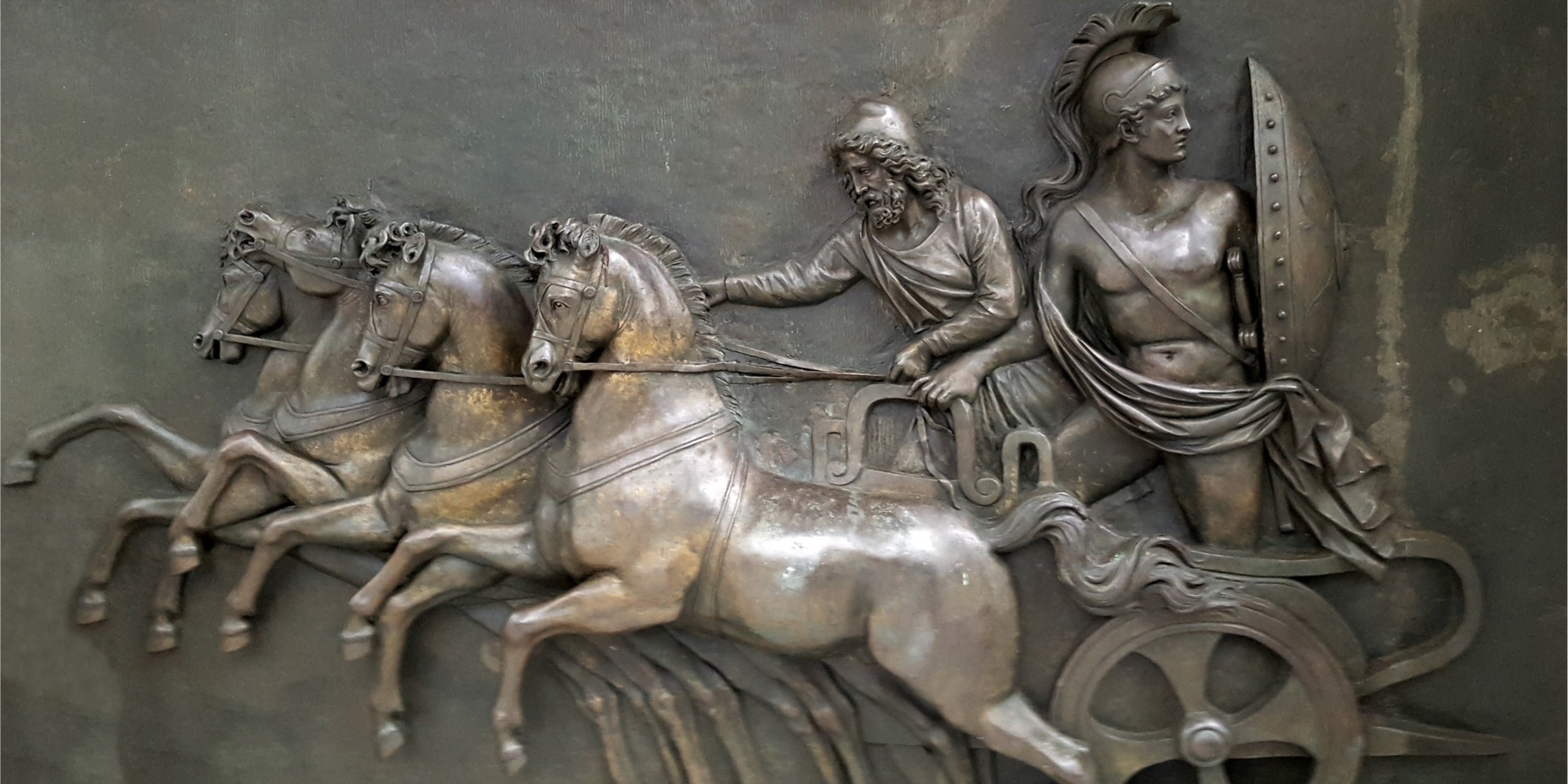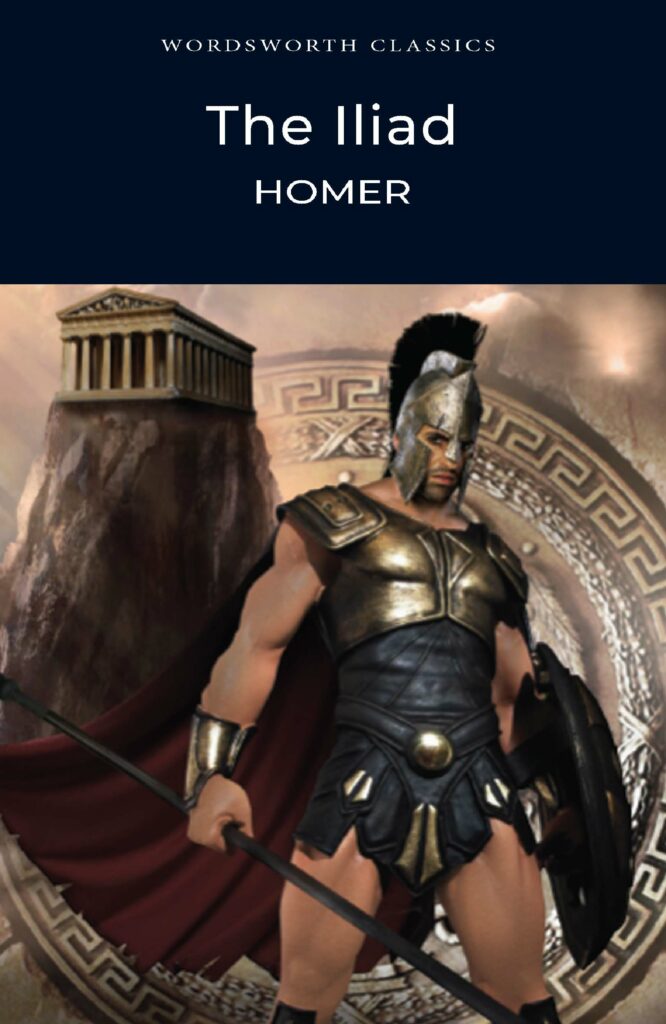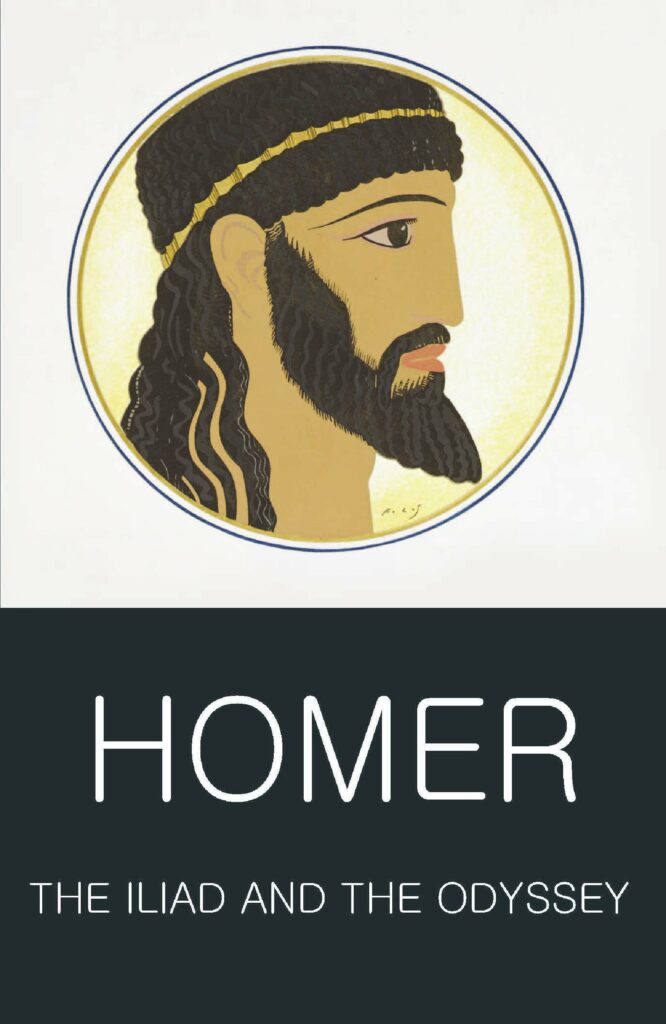
Mia Forbes looks at The Iliad
Mia Forbes looks at ‘The Iliad’, the epic ancient Greek poem set in the Trojan War.
In 1715, Alexander Pope prefaced his translation of the Iliad with an introduction almost as poetic and mystical as the epic it precedes. “Our author’s work”, Pope says, “is a wild paradise, where, if we cannot see all the beauties so distinctly as in an ordered garden, it is only because the number of them is infinitely greater.” He talks of the poetic fire which “in Homer, and in him only, burns everywhere clearly and everywhere irresistibly” and compares the work to “a powerful star, which, in the violence of its course, drew all things within its vortex”. Indeed, for almost three millennia, this vortex has exerted a mighty pull over the stories and literature of Western tradition that stem from and surround it. But now we might wonder, what first comes to mind when we think of the Iliad?
On hearing the name Achilles, most of us probably find ourselves cringing at the thought of snapped ligaments before we recall that ancient Greek hero whose mother carelessly neglected to dunk him all the way into the fortifying river Styx as a baby. But the reader who undertakes the 24 books of the Iliad, keen to discover more about the Trojan War – the wooden horse, Helen whose face launched a thousand ships, and Achilles’ heel – risks facing disappointment. The epic poem spans just over a month in the ninth year of the Trojan War, and while there are battle scenes in abundance, it is not really about the war and nowhere in its 15,000 lines does the poet make mention of that most infamous of ankles. He tells us in the very first lines what his poem is to be about:
μῆνιν ἄειδε θεὰ Πηληϊάδεω Ἀχιλῆος
Sing, o Muse, of the wrath of Achilles, son of Peleus
(Il. 1.1)
This is not your average wrath, however. The Greek word μῆνις (meh-nis) is only ever applied to the gods, a term reserved for the divine anger of indignant immortals. But Achilles, despite being the son of a sea-nymph and the best of the Greek warriors, is human. And so, with this first word the poet points towards the crux of the epic: mortality. As the narrative develops we see the hero – albeit begrudgingly – come to terms with the fact that he is not a god, but a man. As profound and poignant as this dilemma is, Achilles’ existential struggle first manifests itself not as the introspective musings of a reflective soul, but in literature’s most epic tantrum.
At the start of the poem, the commander of the combined Greek forces, Agamemnon, angers Achilles by taking away from him Briseis, a woman whom he had won as an honour prize (γέρας) amid the spoils of battle. What vexes him so much is not the loss of his γέρας, but the leader’s audacity in dishonouring him, refusing to treat him with the god-like reverence Achilles feels he deserves. The two heroes engage in a heated argument, in which only the intervention of the goddess Athena prevents Achilles from slaying Agamemnon there and then. Storming off across the beach in tears, Achilles calls upon his goddess mother, who appears out of the sea and laments the short-lived fate of her mortal child. She promises to intervene with Zeus to punish the Greeks for Agamemnon’s offence, and for the next 19 books, Achilles withdraws from the war and the community of the Greek camp, retreating into the isolation of his hut. In the meantime, the reader is treated to scenes of gruesome battlefield deaths, snapshots from within the walls of Troy, and failed attempts at diplomacy among the quarrelling Greek factions. It is in these last scenes that we see where the real problem lies for Achilles.
In Book 9, Agamemnon sends an embassy to the hero’s tent, consisting of Odysseus and Ajax, two of the foremost Greek leaders, and Phoenix, who plays something of a father figure to Achilles. These comrades are supposed to persuade him to rejoin the war, tempting him with promises of treasure, land, titles and the return of Briseis among other women. Achilles refuses the ransom, however, and remains impervious to their attempts at persuasion; Agamemnon cannot offer him any amount of wealth or prestige that will make up for his offence in Book 1. Unphased by the desperation of his comrades, Achilles reveals that there are only two paths left open to him:
μήτηρ γάρ τέ μέ φησι θεὰ Θέτις ἀργυρόπεζα
διχθαδίας κῆρας φερέμεν θανάτοιο τέλος δέ.
εἰ μέν κ᾽ αὖθι μένων Τρώων πόλιν ἀμφιμάχωμαι,
ὤλετο μέν μοι νόστος, ἀτὰρ κλέος ἄφθιτον ἔσται:
εἰ δέ κεν οἴκαδ᾽ ἵκωμι φίλην ἐς πατρίδα γαῖαν,
ὤλετό μοι κλέος ἐσθλόν, ἐπὶ δηρὸν δέ μοι αἰὼν
ἔσσεται, οὐδέ κέ μ᾽ ὦκα τέλος θανάτοιο κιχείη.
For my mother, the silver-footed goddess Thetis,
Tells me that the doom of death bears twofold fates:
If, remaining here, I wage war about the city of the Trojans,
Home-coming will be lost to me, but there will be undying glory.
If I go home to my dear native land,
Great glory will be lost to me, but there will be a long life,
And not for a long time will the doom of death come upon me.
(Il. 9.410-416)
So he is faced with the choice between a swift and heroic death or a long but nameless life. He tells the embassy that he has settled on the latter, encouraging them to unfurl their sails and head home too. At this point, the reader might be a bit concerned: is the hero, who has yet to do anything very heroic, about to pack up and leave? But clearly not. Despite all his threats, Achilles remains in his hut for the next ten books, unable to relinquish his hopes of glory and still struggling to come to terms with his inevitable death. He emerges only when his dearest friend and comrade Patroclus is killed while wearing Achilles’ armour, in an attempt to raise the morale of the Greek army by pretending that their number one fighter had returned to the battlefield. Patroclus’ death affects Achilles very deeply: he cannot eat, he cannot sleep, and all he can think about is wreaking vengeance on the Trojans. He embarks upon a brutal killing spree, which ends in a famous confrontation with the Trojan prince Hector, whom he kills and whose body he then drags around the walls of the city in Book 22. The following book is taken up with the elaborate funeral games he hosts in honour of Patroclus. In returning to battle, Achilles shows his real colours: he ultimately chooses the first option, to die young at Troy while winning eternal glory.
Book 24, the final book of the Iliad, contains a striking scene of reconciliation between the two men whom we might think least likely to share in a meal and part on terms of mutual respect. Under the cover of night, Priam, the aged king of Troy and father of Hector, approaches the hut of Achilles, his son’s murderer and the foremost warrior in the army that had been waging war on his city for the past decade. He falls at the hero’s knees and begs him to return his son’s corpse to him so that he might bring it to Troy and give it proper burial rites. Achilles assents – a shocking move from a man whom we previously saw stubbornly refusing the requests of his own commander, and rampaging through the ranks of Priam’s soldiers, cutting them down in a passionate rage. Something in the pleas of the old king touches Achilles, as he beseeches him to think of his own father. The poet concludes the Iliad with Priam’s return to Troy, bearing the body of his son, and the poem which began with ‘the wrath of Achilles’ ends with ‘the funeral of horse-taming Hector’.
Simply by hosting the revered king as his guest and equal in his humble hut, Achilles, at last, receives the recognition that he has desired since the start of the poem, Priam’s royal presence validating the hero’s status. But here, in the wake of Patroclus’ death and Achilles’ overwhelming grief, the conferral of honour is devoid of much of its significance. Their meeting represents the fundamental change that Achilles experiences throughout the narrative: in Book One he is angered when a leader whom he does not respect dishonours him, but in Book, Twenty-Four has a far more prestigious king kneeling at his knees. The wrath of Achilles should surely be appeased. And yet any gratification is marred by the death of his comrade, and when he is at last treated with the god-like awe and respect he first demanded, it no longer holds meaning for the hero. Patroclus’ death makes Achilles realise, and begrudgingly accept his own mortality. Seeing Priam’s own sorrow, Achilles sums up the human condition:
οὐ γάρ τις πρῆξις πέλεται κρυεροῖο γόοιο:
ὡς γὰρ ἐπεκλώσαντο θεοὶ δειλοῖσι βροτοῖσι
ζώειν ἀχνυμένοις: αὐτοὶ δέ τ᾽ ἀκηδέες εἰσί.
δοιοὶ γάρ τε πίθοι κατακείαται ἐν Διὸς οὔδει
δώρων οἷα δίδωσι κακῶν, ἕτερος δὲ ἑάων:
ᾧ μέν κ᾽ ἀμμίξας δώῃ Ζεὺς τερπικέραυνος,
ἄλλοτε μέν τε κακῷ ὅ γε κύρεται, ἄλλοτε δ᾽ ἐσθλῷ:
ᾧ δέ κε τῶν λυγρῶν δώῃ, λωβητὸν ἔθηκε,
καί ἑ κακὴ βούβρωστις ἐπὶ χθόνα δῖαν ἐλαύνει,
φοιτᾷ δ᾽ οὔτε θεοῖσι τετιμένος οὔτε βροτοῖσιν.
There is no use in chilling lamentation,
For the gods have fashioned it so for wretched mortals,
To live in pain. But they themselves are carefree.
For two urns are set down on the floor for Zeus,
One gives gifts of evil, the other of blessings.
To he whom thundering Zeus gives a mixture,
He will sometimes meet with evil, sometimes with good.
But to he whom he gives of the evils, he makes him despised,
And devouring madness drives him over the sacred earth,
And he wanders honoured by neither gods nor men.
(Il. 24.524-533)
Achilles sees the world as a nihilistic arena devoid of moral consequences, in which mortals simply play out the fate allotted to them at random by the gods. This is the stinging conclusion by which his struggle with his self-identity resolves itself: the hero may have avenged the death of Patroclus, shown pity to Priam, and even accepted his own death, but his view of human life remains bitter and resentful. The reader was never expecting a happy ending to this story of conflict, death and destruction, but as we accompany Priam back to Troy, leaving Achilles alone in his hut, we are struck not so much by the immensity of the war and the havoc it wreaks, as by the painful intensity and depth at which the poet explores what it means to be mortal. It comes as no surprise, then, that the Iliadic vortex has exerted such a powerful attraction to all manner of audiences ever since the poet sang of Achilles’ wrath. Alongside its legendary warriors, mythical back-story and dramatic episodes of one-on-one combat, the Iliad invites each of us to consider some of the questions most central to human life.
A note on the poet
I prefer to use the term ‘the poet’, since the name Homer (and the attribution of the Iliad and Odyssey to this figure) has always been a source of controversy. There are several schools of thought regarding the infamous ‘Homeric question’, which asks who wrote the Iliad and Odyssey, whether they were both written by the same person, and whether there was even a single poet responsible for either. Oralists believe that the epics that we now know by these titles are simply a snapshot from a long tradition of oral poetry, songs sung and adapted over a series of performances which consequently cannot be attributed to a single author. Other scholars believe that both poems were composed by individual poets, at some point in the 8th or 7th century BC. There are many (heated!) arguments made by either side of the debate, and the reader interested in discovering more about them may find the opposing cases made by Gregory Nagy and Martin West useful, though advanced.
Mia Forbes

